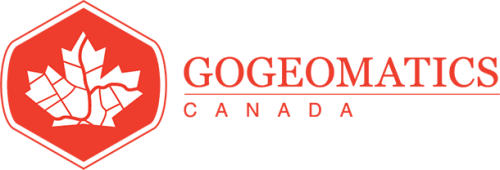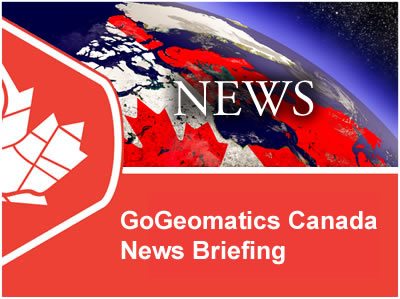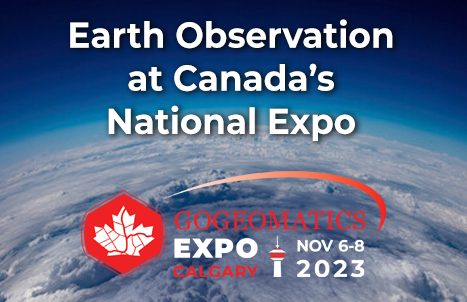Your Canadian Geospatial Briefing for September 17th: LiDAR; Maxar Technology; Melting at Lowell Glacier; National Road Network
A Canadian Company joins the Lidar Race

Image from LedderTech
LiDar is the biggest technological barrier to autonomous vehicles becoming available to consumers. That’s why Quebec company LeddarTech Inc. has entered a race with several other companies producing LiDAR chips that are stably mounted, safer, and cost-effective. LeddarTech has just released its 3D SSL SoC system-on-a-chip evaluation package with the goal of starting mass production in 2019. LeddarTech General Manager of Automotive Business Unit Michael Poulin says “We’re proud to be the first company in the industry to deliver 3D solid-state LiDAR SoCs […] This announcement shows that LeddarTech is a company that’s beyond the point of conceptualization and delivers on its ideas and promises.”
Radiant Solutions and TellusLabs partnership
Maxar Technology company Radiant Solutions has partnered with TellusLabs to offer agricultural intelligence products that will provide valuable insight into the world’s food supply. An increased need for data on crop conditions means opportunities for food companies, government agencies, and those in the analytics sector. Thanks to the partnership TellusLabs customers will also be able to purchase discounted access to products like Kernel and Weather Desk—the same resources soon to be used by decision-makers in agriculture.
Unprecedented “Snow Swamp” on Lowell Glacier

Image from NASA
A rapid snow melt on Canada’s Lowell Glacier was recently caught in a false-colour image by the Operational Land Imager on the Landsat 8 satellite. This melt has formed a water-saturated “snow swamp” more than 25 square miles wide, which Mauri Pelto—a glaciologist at Nichols College—attributes to four days of high temperatures of 84 degrees Fahrenheit in July. In what is called an ablation event, the snow was saturated with water all the way to the surface, causing the glacier to retreat.
StatsCan takes over the National Road Network from NRCan
The National Road Network (NRN) Geobase Series is comprised of thirteen provincial and territorial datasets, and it is now the responsibility of Statistics Canada. In 2005, the NRN edition 2.0 was alternately adopted by members from the Inter-Agency Committee on Geomatics (IACG) and the Canadian Council on Geomatics (CCOG). As part of ongoing government-wide Web Renewal efforts, the open-source NRN will now migrate from Natural Resources Canada to the StatCan portfolio.






